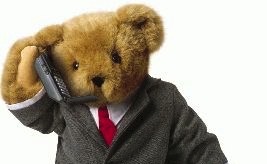Well, it’s that time of year again, when the economy implodes into an infinitely-dense speck of matter, and folks are out looking for jobs in the hopes that one day, in the not-too-distant future, that tiny particle will vomit forth brand new economies in glorious rebirth, or at least just sneeze out a handful of pennies. Bearing in mind that an essential part of getting the job (besides showering) is to undergo the interview process, here are some helpful hints I’ve gathered during my own life experiences.
Determining if the Job is Right for You
Nobody wants to sign up for a job they will ultimately despise; yet, all of us do. Always. Until we die or retire. But there are some subtle cues to look for that will tell you a job may be a bad fit, from the very first moment. Listen carefully to the questions the interviewer is posing. Examples of such questions:
- “Do you have an irrational fear of being spit at?”
- “Do you know how to operate a Geiger counter?”
- “Are you, to your knowledge, allergic to the bite of the Arabian puff-adder?”
All of the above are cues, however subtle, that the job may not be right for you. If you find yourself in this position, it is common courtesy to inform the interviewer that you may not be the right fit for the job, thank them for the opportunity, and don’t be afraid to turn and just run, run hard and surefootedly, pistoning your legs like jackhammers, running, tilted forward at that crazy 45-degree angle like He-Man runs to denote speed, just, just create distance as soon as possible. Don’t look backwards.
Asking The Right Questions
During most interviews, you will encounter a phase where the interviewer asks you if you have any questions for them, usually near the end where you’re beginning to nod off. It is considered bad practice to have nothing to say during this phase of the interview – the interviewer is not only seeking to grant you knowledge on your potential new position, but to simultaneously evaluate your viability for the role. Here are some great questions to ask to really make an impression:
- How often will I be expected to wear pants?
- Is there an opportunity to work remotely? If so, how do you monitor my productivity? Because I’m in a MMORPG guild.
- How often would you say the office has caught fire, and how easily have you been able, historically, to determine the culprit?
- Does the company prefer “quiet quitting”, or “extremely loud quitting”?
You may also, circumstances permitting, simply stare into space for a few moments, and then ask, apropos of nothing: “Why?” Then, pause dramatically, and repeat it again- as often as “feels right”.
Compensation Negotiation
Generally, during the final stages of interview for qualified candidates, the topic of compensation will be broached. Please refrain from this – it is bad form to ask your interviewer how much they are paid.
When it comes to a discussion of your own potential compensation, bear in mind that the position could have defined parameters for pay scale, or could be open-ended in such a way that you may be asked to state your salary requirements without many available clues. This is your opportunity to ensure that you are paid commensurate to your personal feelings of value, or to just try to turn those thumbscrews if the company seems really desperate. Here is a sample dialogue:
Interviewer: “So, (your name) – what are your salary requirements for this position?
You: “How much you got?”
Interviewer: “Excuse me?”
You: “You heard me.”
Interviewer (tugging at collar): Ha. Ha. But really though.
You: (just stare) (Note: if you have a switchblade, use it to clean your fingernails at this point.)
Ending the Interview
When it feels as though the interview is nearing its end, remember that you’ve already made all of the impression you’re going to make, and by this point have asked all of the pertinent questions. To make a smooth and memorable exit, determine whether the interviewer is making end-of-conversation small talk, and just push your chair back and walk out of the room, ideally when they are mid-sentence. Remember, it’s important that you stand out from other applicants, many of whom have followed protocol and are therefore indistinguishable from one another.
Be on the lookout for anything you can tip, flip, or rip on the way out. These items could be tables, commercial printer units, tapestries, lamps, coat racks, etc. Be creative! It’s easy, because it rhymes: remember, that’s:
- Tip
- Flip, and/or
- Rip
You’ve got this!!
